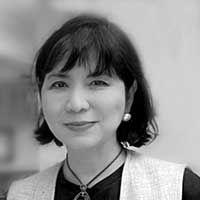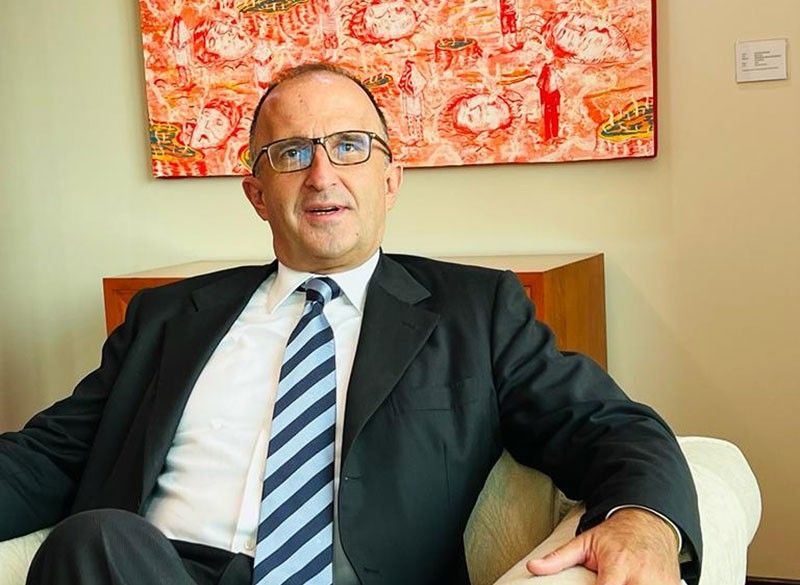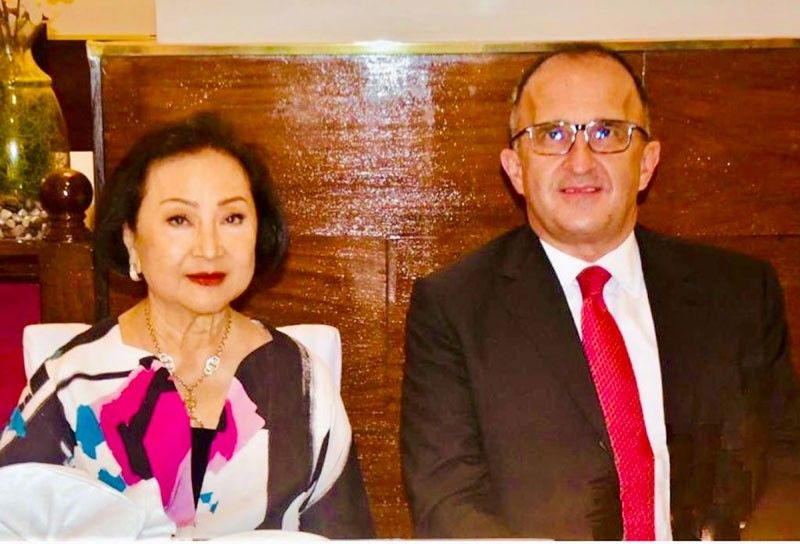Marco Clemente: The cool ambassador of opera


Breathes there a man with soul so alive that he lives and breathes opera?
I met such a man recently and he’s quite a cool and charming person: Italian Ambassador Marco Clemente.
His very cool dream is to be in touch with today’s TikTok and YouTube generation so that they can discover the beauty of the opera. Just like he did when he was young.
“I was 13 when I first watched an opera in Italy. I grew up watching it, and since then, I’ve watched opera all my life. It’s my Prozac! I watch opera when I’m depressed,” smiles Ambassador Clemente, who adds: “Music is an important part of our well-being. It helps us overcome difficult moments in our life. Yes, the Italians invented opera. It’s part of our DNA. Italy is a cultural superpower.”
He says, “Maybe young people will get bored, maybe not. At least they will get a chance to know about it. Opera belongs to everyone. It’s an international form of communication. There’s no need to understand every word.”
The Ambassador notes that some people may find the opera boring because they don’t understand the story. “So before watching an opera, you should read about its story. Watching opera is just like watching a movie. There’s always a story.”
The opera on his mind right now is Turandot, which will be presented at the Cultural Center of the Philippines on Dec. 9 and 11 this year. It’s a love story; it’s also about unrequited love. It’s a work of Giacomo Puccini (1858-1924), who wrote other great operas like La Boheme, Tosca and Madame Butterfly.
Turandot is a project that binds Ambassador Clemente with another opera lover, Nedy Tantoco, chairperson and CEO of the Rustan Group of Companies.
“Ambassador Clemente is an opera expert who lives and breathes opera every second and every minute,” says Tantoco.
He arrived in the Philippines last year, so the initial communications between Clemente and Tantoco were mostly by phone and by Zoom, before meeting face to face. Since then, they have been kindred souls whose passion for opera finds expression in Turandot, which they will be presenting.
“I remember I was in high school when my father (former Ambassador to the Vatican, Bienvenido Tantoco Sr.) brought me to an outdoor opera, Turandot, in Verona, Italy. I guess that’s when my consciousness for opera started,” Tantoco recalls.
“Whenever it was opera season in New York, my father made it a point to buy tickets for the entire season as a member. Fortunately for me, it was retail buying season in New York at the same time, so he would take me along.”
Such early exposure formed the foundation for Tantoco’s steadfast love for opera and other art forms that would later give her the resolve, in her heart and mind, to present cultural productions.
Clemente and Tantoco agree that Turandot is a good choice for the Philippine audience.
“In Turandot, what Filipinos will find attractive is setting, which is China. It’s relatable to us because it happens in Asia,” Tantoco says. “The glorious set design and costumes are also an attraction.”
Clemente explains, “Puccini wanted Turandot to be his masterpiece. He researched on Chinese music and he asked friends, including the Chinese ambassador then, for insights into Chinese culture. A friend of mine, upon watching Turandot, remarked that he recognized an old anthem of the Chinese empire having been reassembled by Puccini into the opera, Italian-style.
“Puccini had cancer while composing Turandot, and unfortunately he died after an operation that went bad. So he was not able to finish it.”
Clemente notes that it was in 1922 — exactly 100 years ago — when Puccini started working on Turandot. “After he died in 1924, nobody dared finish his opera at once — it would have been a sacrilege then — but about two years later, the final draft for about 10 percent of the opera was done by Franco Alfano, which convinced Arturo Toscanini to conduct its first staging in 1926 in La Scala. Turandot is romantic and fantastic.”
Based on a Persian story, Turandot means “Daughter of Turan,” a place that was formerly a part of the Persian Empire. It’s about Princess Turan, who sets three riddles, and the Prince must solve them. He melts a woman’s heart while breaking another. He, in turn, gave the Princess another riddle to solve, which the people must give her the answer to, and rendered them sleepless for the answer.

Thus, Nessun Dorma, the famous aria from this opera, means “No one shall sleep.”
Nessun Dorma is sung in the third act, and some people actually see Turandot because of this famous aria, Clemente says. “I like Luciano Pavarotti’s singing of this aria best, although Placido Domingo also did a good job.”
It is Clemente’s dream, while he is here, to make young Filipinos more appreciative of the opera. “Our generation has the very important responsibility to leave a legacy to the younger generation. We must educate them to enjoy these things that give spiritual richness to our being. Maybe it’s an illusion, maybe it’s wishful thinking.”
But Tantoco says the ambassador is so determined to make this a reality. “He wants to bring opera to high school students by inviting them to watch Turandot for free during the final rehearsals, with the assistance given him by Vice President Sara Duterte, who is also our Secretary of the Department of Education… He is also using the film version of the opera by the New York Metropolitan Theater to further bring the opera to the masses, a project he is working on in cooperation with CCP president Margie Moran-Floirendo. Indeed, Ambassador Clemente is a moving force in opera.”
Tantoco says that the Italian Embassy as major sponsor is taking care of all the Business Class airfare of all artists coming from Italy and Korea, as well as their almost month-long stay at the five-star Hilton Hotel at Resorts World.
“But on top of this financial help is Ambassador Clemente’s expertise, his love for the opera, and his initiative to bring it closer to the Filipinos, young and old,” adds Tantoco. Indeed, what he is doing is more than just cultural diplomacy.
“Nedy Tantoco has the professionalism and the passion. She presented the production plans for Turandot so wonderfully, with everything in place,” says Ambassador Clemente, who declares that the Italian Embassy is proud to sponsor it. “It is a social and cultural event, but it is also a political event, since it marks the 75th year of Philippine-Italian relationships. We are also honored that Turandot is the finale performance of the CCP before it undergoes a major renovation. I hope it reopens in two to three years with another Italian opera. I must be retired by then in my home country, but I will gladly fly back to the Philippines for that.”
Tantoco, who is president of the Philippine-Italian Association, has presented three other operas in the past, always a company production with the Cultural Center of the Philippines, where she was board member. These include The Barber of Seville by Gioachino Rossini, L’Elisir d’Amore by Gaetano Donizetti, and Lucia di Lammermoor, also by Donizetti. This is her first time to produce Turandot in the Philippines. In 1979, it was shown at the Manila Metropolitan Theater.
Through the years, Tantoco has worked closely with the Italian Embassy. “A few names come to my recollection, which warm my heart deeply: Ambassadors Mario Crema, Umberto Colesanti, Massimo Roscigno, Luca Fornari and Giorgio Guglielmino.”
Tantoco’s efforts in promoting art and culture were recognized by the Italian president who, through Ambassador Colesanti, awarded her as Knight Commander “Ordine Della Stella Della Solidarieta Italiana” in 2004.
“Turandot is one of my favorite operas,” says Tantoco. “But it is also my dream to one day produce Aida, my favorite by Giuseppe Verdi, with the CCP, the Filipinas Opera Society Foundation and all my supporters and friends in the business sector who support all my endeavors in art and culture.”
Both Clemente and Tantoco say presenting an opera is a huge task. “As CCP president Margie Moran-Floirendo said, it takes a village to produce an opera. It is not easy to put together the resources needed to mount a good opera.”
“I think they are heroes,” says Ambassador Clemente, referring to Tantoco and “these cultural advocates and business people supporting Turandot.”
Yes, we need cultural heroes. And also cool ambassadors who make operas enjoyable.
* * *
The opera Turandot will be presented through a tie-up with the CCP, Embassy of Italy, Filipinas Opera Society Foundation, and the Rustan Group of Companies for the benefit of the Philippine-Italian Association, at the CCP Main Theater on Dec. 9 at 8 p.m. (gala); and on Dec.11 at 3 p.m. (matinee). For tickets, contact Lulu Casas 0917-570-8301; CCP box office 8832-3704.
Follow the author on Instagram and Facebook @milletmartinezmananquil. Email her at mmmananquil@philstarmedia.com and milletman88@gmail.com.



















